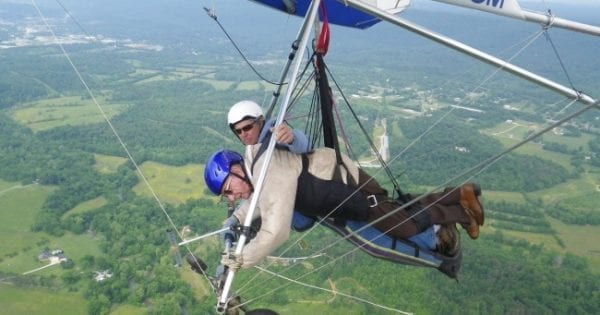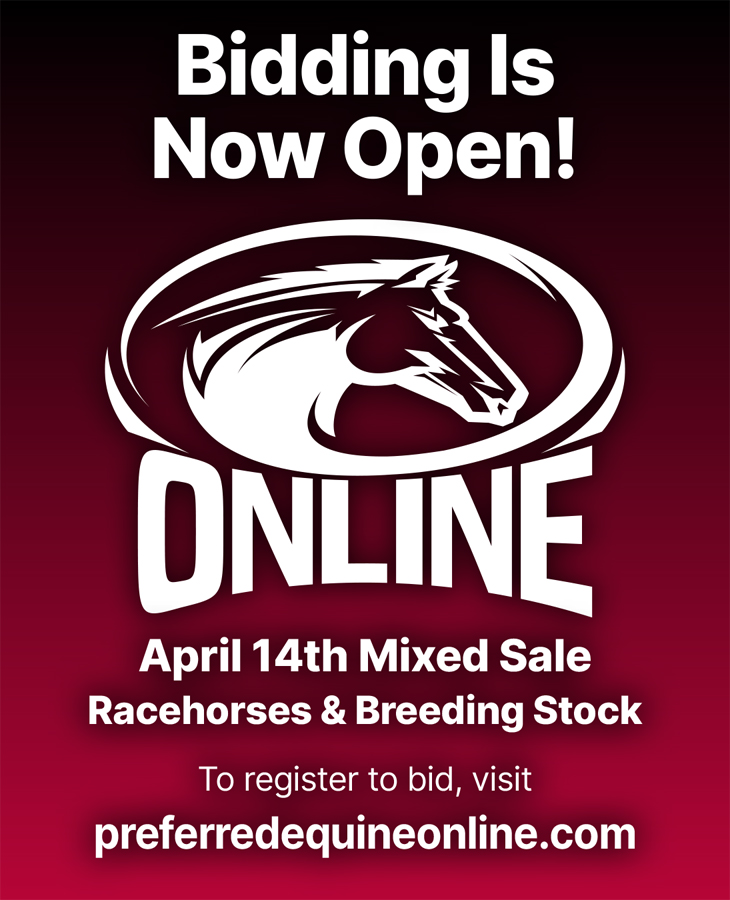Happy trails, partner
by Dean A. Hoffman
Don’t mourn the death of Hall of Famer Howard Beissinger.
Howard was never much for sentimentality, and he’d be the first one to tell you that he got the best of life long before it got the best of him.
“I’ve lived enough for three lifetimes,” he told me decades before his death.
Beissinger died Tuesday evening in Hamilton, Ohio, not far from where he had been born. He was just a few months short of his 95th birthday. He’d spent the last three years in a nursing home (which he called a “jail cell”) as a result of a severe case of Parkinson’s Disease.
Howard was raised on a farm that was in the Beissinger family for more than a century. His father raced horses as a hobby when Howard was growing during the Depression years. After World War II was over, Howard decided he was going to pursue horse racing as a profession.
“My mother cried when I told her that,” Howard once said. “She thought horse trainers were nothing but gamblers, drunks, and skirt chasers. It wasn’t long before I realized that she was pretty close to being right.”
Howard hewed to the straight and narrow, however. He had a strong work ethic and a Depression child’s appreciation for the value of a dollar. He found success in the strong Chicago-area racing circuit in the 1950s and soon began to attract well-heeled patrons.
He drove Tie Silk to a third-place finish behind Su Mac Lad in the 1961 International Trot at Roosevelt and a few years later he sold a promising pacer named Oso Slo to the Lindy Farms partners of New York. He continued to race Oso Slo for the partners, establishing a team that would enjoy remarkable success over the decades.
In 1966, Beissinger drove the Antonacci filly Tarport Lib to a 1:56.2 win at Lexington, making the sophomore lass the fastest female in the breed’s history. When he called the owners in New York to pass along the great news, one just wanted to know what she paid in the mutuels.
Howard erupted like Vesuvius, emphasizing in no uncertain terms that what Tarport Lib did on the track was far more important than her pari-mutuel payoff.
His bond with the Antonacci and Lomangino families was an unlikely one — Italian families from New York with the farm boy from Ohio. Yet it persisted. A year after he set the record with Tarport Lib, Howard bought a yearling named Galahad Hanover for $15,000 for partners. He was renamed Lindy’s Pride and won the Triple Crown in 1969.
Lindy’s Pride suffered from bad hooves, but Howard was a stickler for detail on shoeing and care of the hooves. He unquestionably drove many farriers to reach for strong drink as he supervised every minor detail of his horses’ shoeing. That was one of the many reasons for his success.
When Lindy’s Pride was a standout freshman, Howard’s mare Missile Toe had her first foal at the Beissinger family farm in southwest Ohio. The colt arrived in late January just after Howard had returned from his first trip to the National Finals Rodeo, then contested in Oklahoma City.
Howard took an avid interest in rodeo in his 40s and he named this 1968 foal Headin And Healin after a rodeo event officially called team roping.
He took this Speedy Scot colt from Missile Toe to Florida for winter training and sold him in early 1970 to Frank Antonacci with the understanding that he would keep the horse in training. Frank Antonacci knew little of the rodeo world and changed the colt’s name to Speedy Crown. The rest is history.
Howard won the Hambletonian in 1971 with Speedy Crown and then won his third Hambo in a decade in 1978 with Speedy Crown’s son Speedy Somolli. Three years later in the first Hambo at the Meadowlands, Howard was edged in the raceoff driving Super Juan, the second-best sophomore trotter in his stable. (His top colt Defiant Yankee missed that Hambo due to illness.)
Howard was often a study in contrast. He usually displayed old-world manners with women. (“He actually tips his hat to me every time we meet,” one lady told me. “How many men do that in this era?”)
When riled, however, Howard had the subtlety of a nuclear warhead. He had a spat with another horseman once, and later encountered the man at a gas station. Howard bragged, “I hit him so hard that his toupee fell off.”
He raced across North America and in many Europe countries, too. Howard and I did some speaking engagements in Sweden about 20 years ago and in that trotting -crazed country he was treated like visiting royalty.
When Howard took an interest in rodeo, he decided to “bulldog” steers in his free time. Steer wrestling is a rodeo event in which a rider leaps off a running horse on the back of a running steer and tries to wrestle it to the ground. It’s an event best left to ex-football players who feel ten feet tall and bulletproof, but Howard took to it in his 40s. He loved it, and his fascination with rodeo developed over the decades.
He began going to the National Finals Rodeo in 1968 and didn’t miss this cowboy World Series for the next 45 years. I enjoyed the NFR in Las Vegas at least a dozen times with Howard and was amazed that he knew as many people in the cowboy world as he did in harness racing.
When we went to the rodeo in Vegas, Howard balked at parking the $7 parking fee at the Thomas & Mack Arena. Instead, he parked illegally on a Vegas side street to save the money. (He never got a ticket.)
Howard often used the cowboy vernacular by saying that a skilled horseman was “a good hand.”
Speaking of hands, Howard told me once that he hired an assistant trainer based on the man’s handshake.
“When I shook his hand, it was all callused up,” Howard said. “I knowed then that he’d been working.”
Some trainers and caretakers found it difficult to work for Beissinger because of his no-nonsense approach. It’s often said that some people don’t suffer fools gladly, but, believe me, Howard Beissinger didn’t suffer fools at all. He set high standards for himself and expected his subordinates to follow suit.
He had, however, a deep and abiding affection and respect for some of his assistants, such as Mike Zeller, Osvaldo Formia, and John Roach.
Howard was a man of remarkable high energy and drive. In his late 70s, he called to tell me he was having cataract surgery in Cincinnati and would not be able to drive for four days. I said that was a small price to pay for improved vision.
Two days later Howard called and said he was in Oklahoma. I asked how he got there.
“I drove,” he said.
I asked, “Did you hit anyone or anything between Ohio and Oklahoma?”
Howard said, “I don’t think so.”
Howard’s close friend Doug Ackerman once said, “Howard’s the only 80-year-old I know who should get a job to keep himself busy.”
When Howard was 80, he celebrated with his children near Ft. Lauderdale, Florida. They bought him a parasailing adventure. Howard enjoyed soaring high above the Atlantic Ocean coast.
When the parasailing adventure concluded, Howard said, “I just got in my car and started driving north toward Ohio. I figured I’d get a motel room somewhere when I got tired. But I didn’t get tired, so I just drove back to Hamilton.”
(By the way, it’s about 1,100 miles from Ft. Lauderdale to his home in Ohio.)
On this 90th birthday, Howard wanted to try sky diving, but his children vetoed that. Instead, they settled on hang gliding near Lookout Mountain, Georgia. Howard was paired with an experienced hang glider pilot. A makeshift airplane towed the glider to an altitude of 3,000 feet, then cut the glider free. Howard and his partner soared in the wild blue yonder before ultimately returning to earth.
In 2015, I called Howard on his 92nd birthday and began singing Happy Birthday.
Howard said, “Well, partner, I’ve made it to 92 and I’m ready to go.”
He had been struggling with Parkinson’s Disease for several years, but the medication was causing him to pass out frequently. Medical professionals frown when a 92-year-old man living alone passes out frequently.
He was placed in a nursing home, which Howard hoped would be only temporary. Howard Beissinger was never cut out to live within the confines of one room.
One day he went to the front desk at the nursing home and asked for someone to call him a taxi. He wanted to go to his home, where he planned to get in his car and drive to Kroger’s to get some chocolate cake. Staff at the nursing home put the kibosh on that plan before it got underway.
I could write a book about Howard and the time we spent together. We grew quite close in the last 35 years. After I gave the eulogy for Hall of Famer George Sholty in 2000, Howard told me he wanted me to give “the talk” at his service. And I will do so.
But it will be a celebration of a life very well lived. Still, I will miss my friend and miss our conversations.
Happy trails, Howard.

















